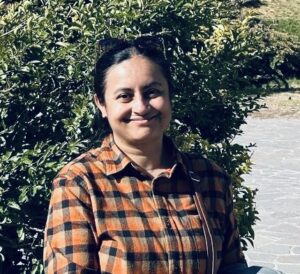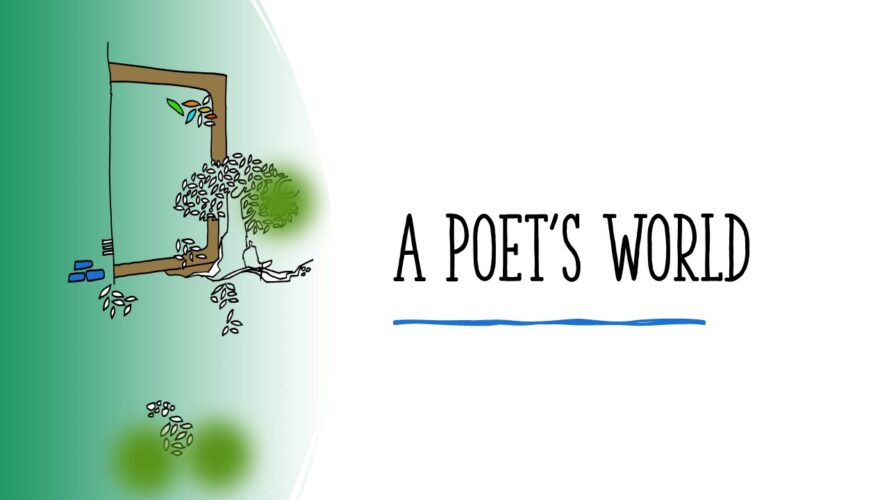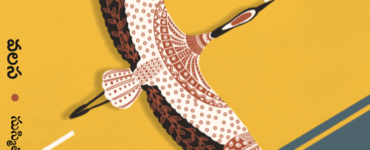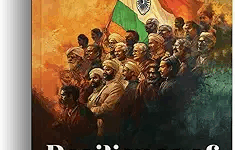Tell us about your journey till now, how has your writing style evolved over time?
It’s hard to locate a point in time when my writing journey began. I do recall the earliest instance of when I began enjoying the act of writing, though. It was in response to an essay-writing question I faced during English exam in middle school. The topic was a favourite place of visit, and I remember the sense of freedom I felt while writing a story about Appu Ghar, an amusement park that had been established in Delhi to commemorate the 1982 Asiad Games. This wasn’t knowledge gathered from books — memorizing poems or analyzing narratives written by other writers — but experiencing the creative thrill of writing one’s own story. From that short essay to everything I’ve written so far, my writing has evolved just as my life has — through emotional upheavals and geographical migrations.
The environment I grew up in also shaped my growth as a writer. My mother worked at the Arts Library in Delhi University and my grandmother was a writer herself. Ours was a joint family, and I grew up surrounded by books as well as the act of my grandmother writing on a daily basis. This must have caused in me a love for literature, and later, for writing, as I began working in journalism.
In 2011, my name appeared for the first time on the cover of a book when I translated ‘My Days With Ramkinkar Baij’ (Niyogi Books), a book of conversations with and reminiscences about legendary sculptor-painter, Ramkinkar Baij. The book, written in Bengali by Somendranath Bandopadhyay, who taught Bengali literature in Visva-Bharati, Santiniketan and had been Baij’s neighbour, moved me deeply enough to translate it for a global audience.
By the next time I would see my name on a book cover, I would have gotten married, moved two continents and three countries, worked at a full-time day job and steal moments from household chores to work on my novel. In 2020, ‘Victory Colony, 1950’ (Yoda Press) was published. The novel speaks of the resilience of refugees from East Pakistan, who found themselves mostly unwanted on either side of the border following Partition. In the face of government apathy and public disdain, they started their lives from scratch, and in the process, changed the sociocultural landscape of Calcutta, the city they claimed as home, forever. My own roots impacted the writing of this book. My grandparents were themselves refugees from East Pakistan and had lost their ancestral property at the time of India’s independence in 1947.
My most recent published work is a poetry collection titled ‘Nostalgic for a Place Never Seen’ (Copper Coin Publishing). The book traverses multiple geographies — temporal and metaphysical. Divided into eight sections, the poems in this collection ponder on themes such as migration and displacement, finding home, food, textiles, music, love and nature.
Can you name a recurring image or metaphor in your work, and explain its significance?
I’m hard pressed to pinpoint any one image or metaphor like that, but ideas relating to memory, displacement and the tug of loss — both as nostalgia and heartache — are ideas the keep recurring in my writing. I often find myself contemplating the forced migration my grandparents went through at the time of Partition and my own migration to the West, voluntary on the face of it, but also dictated by particular circumstances — in my case, as is true for many women, by marriage. As I started missing the home that saw my birth and anchored me for more than three decades, I could feel, across the divides of time and space, the sense of loss that must have haunted my grandmother as she found herself uprooted from her home in East Bengal (present-day Bangladesh). This often surfaces in my poems where I find myself missing my grandmother’s native village, a place I’ve never visited, except through the stories she told me.
What’s your writing routine, ritual or process?
I wish I had a regular schedule like many writers are known to maintain. But a day job, coupled with housework and other commitments means that I write at random intervals, which could be anything from a few hours to a few days. The exception to this is when I am working on a book-length project. Then I try to write every day, even if for a few minutes. Very recently, only in the last few months or so, I’ve discovered the wonderful delights of being an early riser. The quiet hours before the sun rises and the world comes into view are particularly conducive to writing. I call this the Sufi hour — invisible yet palpable, brimming with a certain magic that feels like a blessing and stimulates creativity.
Since 2021, I’ve been participating, along with a group of poets who go by the umbrella name of ‘Daily Riyaaz’, in National Poetry Writing Month held in April every year. This has been a refreshingly good exercise for me as it allows for me to flex my creative muscles in brief spells of quiet contemplation.
How do you see yourself in the intersection of the world we live in and the poems you write in your solitude? Do you think poetry has the power to influence social change?
Whether one writes in solitude or sitting amidst a crowd, one is never divorced from the world they live in. Neither am I. My poems are often intersectional — as they combine personal angst with the politics of dislocation or social injustice. As for poetry’s power to influence social change, I think that in the increasingly individual-centric world we live in, poetry can still be a vehicle of change, depending on how a particular reader receives or responds to a poem. As a poet, I write what stirs me in the moment or reflect emotions accrued over time. I don’t necessarily feel burdened by any responsibility to foster social or any kind of change. We each write from our specific locations, identities and journeys. If even a single poem one writes manages to stir the heart of just one reader, I feel that’s meaningful. We read books, regardless of the genres labeling them (poetry, fiction, nonfiction, etc.) to make sense of the wider world and of our own selves. In that sense, poetry influences change — again without labeling it as social or otherwise — every time a reader feels moved after reading a poem.
*









Add comment